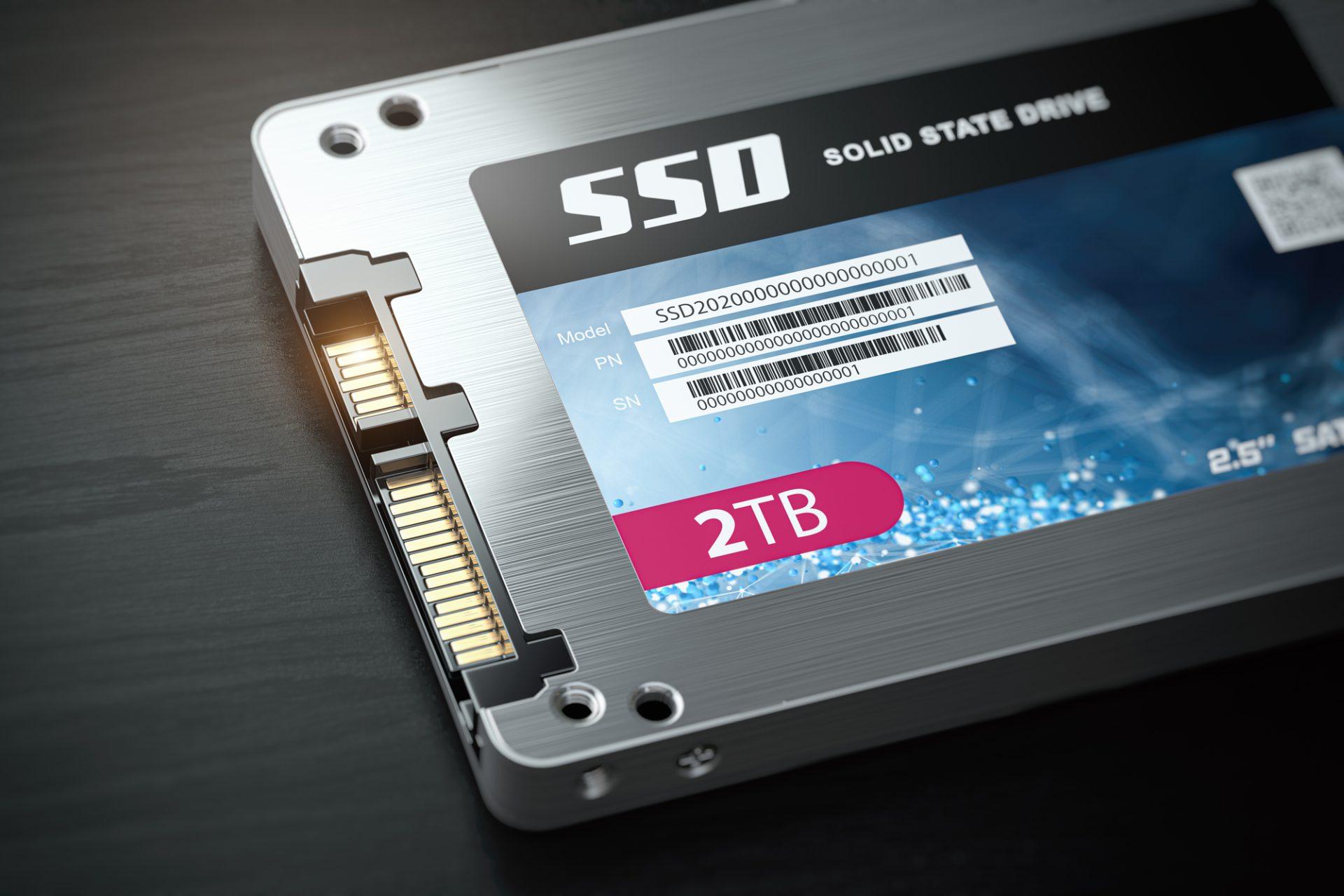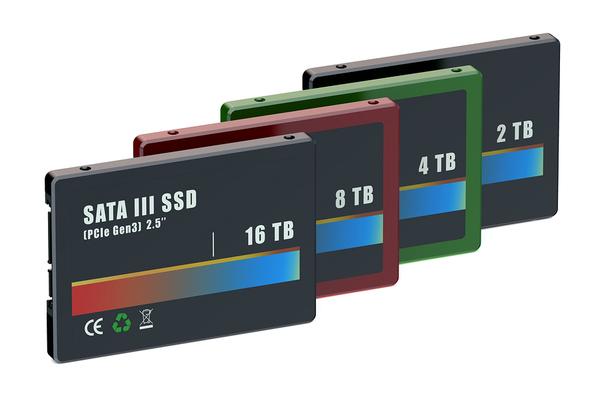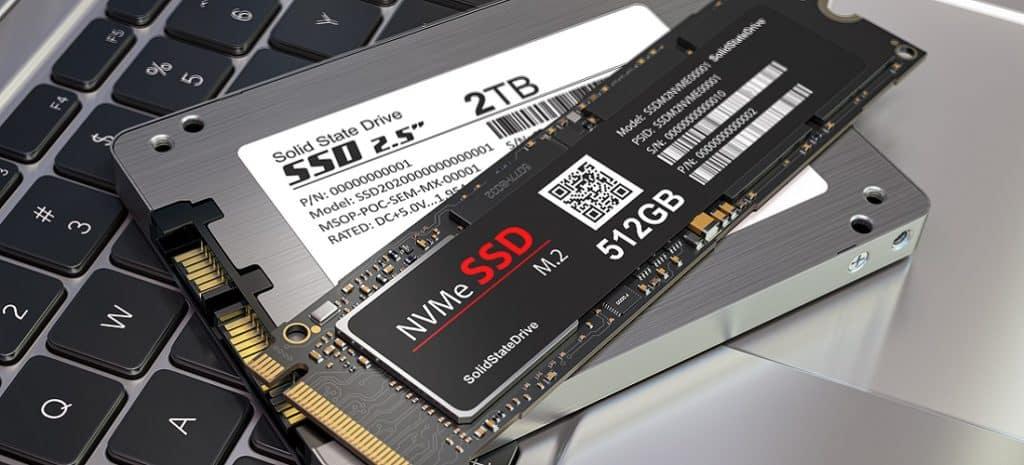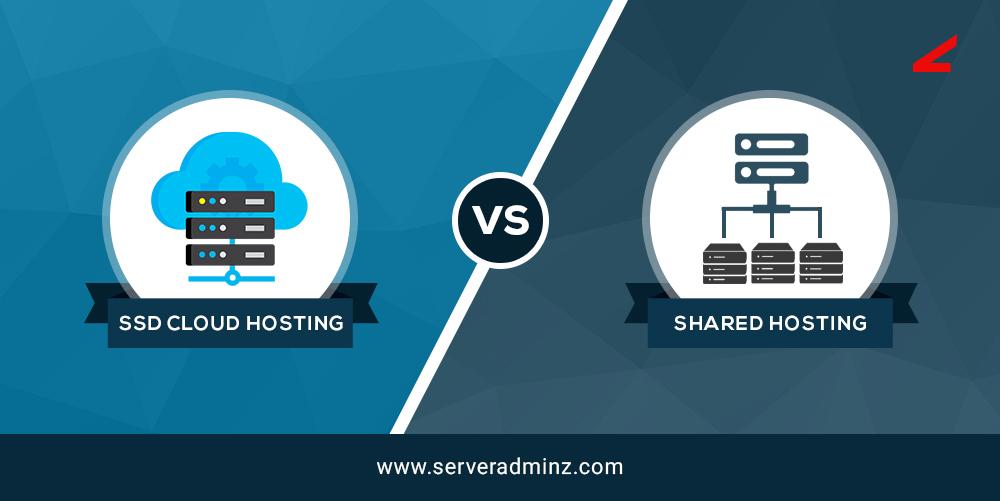Are you diving into the world of web hosting adn feeling a bit overwhelmed by the jargon? Don’t worry; you’re not alone! one term you might have come across is “SSD storage,” and it’s becoming increasingly important in the digital landscape. But what exactly is SSD storage,and why should it matter to you? In this beginner’s guide,we’ll break down the concept of SSD storage in web hosting,exploring its benefits,how it compares to traditional storage methods,and why it might very well be the key to unlocking the full potential of your website. Whether you’re setting up a personal blog, an online portfolio, or an e-commerce site, understanding SSD storage could be a game-changer for your online presence. So, let’s dive in and discover why this cutting-edge technology is worth your attention!
understanding SSD Storage and Its Importance in Web Hosting
When it comes to web hosting, one of the important advancements in technology has been the introduction of SSD (Solid State Drive) storage. unlike traditional hard drives (HDD), SSDs use flash memory to store data, which results in faster access times and improved performance. This speed advantage alone makes SSD storage a compelling choice for anyone looking to enhance their website’s functionality.
Here are several reasons why SSD storage is essential in web hosting:
- performance Boost: Websites hosted on SSDs load substantially faster, leading to better user experience and lower bounce rates.
- Reliability: SSDs are less prone to mechanical failures as they don’t have moving parts, which means lower risk of data loss.
- Enhanced Speed: The data retrieval speed of SSDs is dramatically faster than HDDs, which can improve your website’s performance and responsiveness.
- Efficiency: SSDs consume less power, which not only reduces operational costs but also contributes to a lower carbon footprint for your hosting service.
Moreover, the impact of SSD storage goes beyond just speed. In an era where SEO rankings are closely tied to user experience, faster load times can lead to improved search engine rankings. Google and other search engines prefer websites that provide a seamless experience for users, which means that investing in SSD hosting can be a strategic move for any buisness looking to grow its online presence.
To give you a clearer picture, consider the following comparison between HDD and SSD performance metrics:
| Feature | HDD | SSD |
|---|---|---|
| Speed | 100-200 MB/s | 200-550 MB/s |
| Access Time | 5-10 ms | 0.1 ms |
| Durability | Less durable (moving parts) | Highly durable (no moving parts) |
| Power Consumption | Higher | Lower |
SSD storage in web hosting is more than just a trend; it’s a necessity for those who aim for excellence in their online ventures.By choosing SSD hosting, you’re not only investing in faster performance but also ensuring that your website remains reliable and efficient. With the competitive landscape of the internet today, making the switch can serve as a crucial step toward achieving your digital goals.

How SSD Storage Works: The Basics Explained
At the heart of SSD (Solid State Drive) technology lies a fundamental shift from traditional hard disk drives (HDDs). Unlike HDDs, which rely on spinning disks and mechanical arms to read and write data, ssds utilize flash memory chips. This design allows for significantly faster data access and retrieval times,which is essential for modern web hosting environments that prioritize speed and efficiency.
here’s how SSD storage operates:
- Flash Memory: SSDs use NAND flash memory to store data in a way that doesn’t require power to maintain it. This non-volatile nature means that your data remains intact even when the device is turned off.
- No Moving Parts: As SSDs have no mechanical components, they can access data almost instantaneously. This leads to faster boot times, quicker file transfers, and improved overall system responsiveness.
- Data Management: SSDs employ complex algorithms for managing data, including wear leveling and garbage collection. These processes ensure that data is stored efficiently and that the lifespan of the drive is maximized.
When it comes to web hosting, the advantages of SSD storage become even more pronounced. For instance, websites hosted on SSDs can handle higher traffic loads without slowing down. This is crucial for e-commerce sites and platforms where user experience directly influences conversion rates.
Additionally,using SSDs can enhance SEO rankings. Search engines favor fast-loading websites, so by choosing SSD hosting, you’re not just improving user experience—you’re also boosting your site’s visibility in search results.
To illustrate the differences between SSD and HDD in a web hosting context, consider the following:
| Feature | SSD | HDD |
|---|---|---|
| Speed | High (up to 500 MB/s+) | Moderate (up to 150 MB/s) |
| Durability | More durable (no moving parts) | Less durable (sensitive to impact) |
| Power Consumption | Lower | Higher |
| Cost | Higher per GB | Lower per GB |
SSD storage is a game-changer in the realm of web hosting. Its speed, reliability, and energy efficiency make it a preferred choice for businesses looking to optimize their online presence. Whether you’re launching a new blog or managing a large e-commerce platform,understanding how SSDs work can guide you in making the best hosting choice for your needs.
Comparing SSDs to Traditional HDDs: Why SSDs Are the Better Choice
When it comes to choosing between Solid State Drives (SSDs) and traditional Hard Disk Drives (HDDs), the advantages of SSDs become clear, especially in a web hosting context. Let’s dive into why SSDs are often regarded as the superior choice for both speed and efficiency.
Speed and Performance
SSDs are renowned for their lightning-fast data access speeds.Unlike HDDs,which rely on spinning disks and read/write heads,SSDs use flash memory to store data. This means:
- Faster boot times and request launches
- Reduced latency,resulting in quicker file transfers
- Enhanced performance during high-traffic periods
For web hosting,this translates to quicker loading times for websites,leading to improved user experience and higher search engine rankings.
Reliability and Durability
Another significant advantage of SSDs is their robustness. They are more resistant to physical shock and damage compared to HDDs,which have moving parts that can fail. The benefits include:
- Longer lifespan, leading to fewer replacements
- Less vulnerability to data loss due to physical damage
- Lower failure rates, reducing downtime for websites
Energy Efficiency
In today’s eco-conscious environment, energy efficiency is crucial. SSDs consume less power than HDDs, which can lead to cost savings in web hosting operations. Here’s how:
- Less heat generation, reducing cooling costs
- Lower electricity bills for data centers
- Decreased environmental impact
This energy efficiency is not just good for the planet; it also supports enduring business practices.
Cost Considerations
while SSDs are generally more expensive per gigabyte than HDDs, the price gap has been narrowing. It’s essential to consider the total cost of ownership over time. Here’s a quick comparison:
| Feature | SSDs | HDDs |
|---|---|---|
| Speed | High | Low |
| Durability | High | Medium |
| Power Consumption | Low | High |
| Cost per GB | Higher | Lower |
Investing in SSDs for web hosting can lead to better performance, longevity, and ultimately a better return on investment. As technology continues to evolve, the advantages of SSDs are becoming increasingly compelling, making them the logical choice for modern web hosting needs.
The speed Advantage: How SSD Storage Boosts Your Website Performance
When it comes to website performance, speed is king. The way users interact with your site often hinges on how quickly pages load. Enter SSD (Solid State Drive) storage—a game-changer in web hosting that transforms the speed at which your website operates. Unlike traditional HDDs (Hard Disk Drives), SSDs utilize flash memory to store data, resulting in significantly faster read and write speeds.
One of the most notable benefits of SSD storage is its ability to reduce latency. With SSDs,your web server can access and retrieve data almost instantaneously. This translates to:
- Quicker page load times: Users are more likely to stay engaged when they don’t have to wait for content to appear.
- Improved user experience: A fast-loading website leads to higher satisfaction rates and encourages repeat visits.
- Better SEO rankings: Search engines favor fast websites, so an SSD can give you the edge you need to rank higher.
Additionally, SSDs excel in handling multiple requests simultaneously. If your website experiences high traffic or hosts numerous applications, the efficiency of SSD storage means that your server can process multiple read and write operations at once without slowing down. This is especially vital for e-commerce sites or platforms offering real-time interactions.
comparing SSDs and HDDs in terms of performance can be enlightening. Here’s a quick look at their differences in a table format:
| Feature | SSD Storage | HDD Storage |
|---|---|---|
| Speed | High (up to 5000 MB/s) | Moderate (up to 160 MB/s) |
| Durability | More durable (no moving parts) | Less durable (moving parts) |
| Cost | Generally higher | Generally lower |
| Power Consumption | Lower | Higher |
While SSDs may come at a higher price point than HDDs,the long-term benefits they provide make them worth the investment. The enhanced speed and reliability lead to a more efficient website and can save you money in the long run by reducing bounce rates and improving conversion rates.
In a world where user patience is dwindling, opting for SSD storage in your web hosting plan can set your site apart from the competition. The speed advantage not only enhances the user experience but also has far-reaching implications for your business’s online success.Make the switch today, and experience the difference for yourself!

Reliability and Durability: Why SSDs Outshine HDDs in Web Hosting
When it comes to web hosting, the choice between Solid State Drives (SSDs) and hard Disk Drives (HDDs) can significantly impact your website’s performance and reliability. SSDs are rapidly becoming the preferred option due to their superior characteristics, which cater directly to the demands of modern web hosting.
One of the most compelling advantages of SSDs is their reliability. Unlike HDDs, which use spinning disks and mechanical parts to read and write data, SSDs utilize flash memory with no moving components. This inherent design makes SSDs far less susceptible to physical damage. For web hosting, this means:
- Reduced Risk of Data Loss: SSDs can withstand shocks and vibrations better than HDDs, which is crucial for servers that experience constant traffic.
- Longer Lifespan: with fewer mechanical failures, ssds often last longer, ensuring that your data remains safe over time.
In terms of durability, SSDs shine even brighter. they are designed to handle a high number of read and write cycles, outperforming HDDs in environments with heavy workloads. This durability translates to operational efficiency, notably in web applications that demand quick data retrieval and processing times. Here’s how SSDs outperform hdds:
| Feature | SSDs | HDDs |
|---|---|---|
| Read/Write Speed | up to 550 MB/s | Up to 160 MB/s |
| Resistance to Shock | Excellent | Good |
| Lifetime Durability | 5-10 years | 3-5 years |
Moreover, the performance benefits of SSDs further bolster their reliability. Websites hosted on SSDs tend to load faster, resulting in improved user experience and potentially lower bounce rates. Search engines like Google favor fast-loading websites, which means opting for SSD hosting could even boost your SEO rankings.
when reliability and durability are paramount for your web hosting needs, SSDs clearly outshine their HDD counterparts. By investing in SSD storage, you’re not just choosing speed, but also ensuring that your website remains accessible and dependable, regardless of traffic fluctuations or data demands.

Cost Considerations: Is SSD Storage Worth the Investment?
When it comes to web hosting, the choice between traditional HDD (Hard Disk Drive) and SSD (Solid State Drive) storage frequently enough boils down to cost versus performance. While SSDs typically come with a higher price tag, the benefits they offer can make them a worthwhile investment for many users.Let’s break down the key factors to consider.
Speed and Performance: One of the most significant advantages of SSD storage is its speed. Compared to HDDs, SSDs can deliver data at lightning-fast rates, resulting in:
- Quicker page load times
- Improved site responsiveness
- Enhanced user experience
These factors are crucial for retaining visitors, especially for e-commerce sites where every second counts in conversion rates. The improved performance can lead to increased traffic and,ultimately,higher revenue.
Reliability and Durability: SSDs also tend to be more reliable than HDDs. They have no moving parts, which means they are less susceptible to physical damage and wear over time. This durability can translate into lower maintenance costs and less downtime, making SSDs a more dependable choice for businesses. Additionally, the longevity of SSDs can provide a better return on investment in the long run.
Cost vs. Value: It’s essential to assess not just the upfront costs but the overall value offered by ssds. While an SSD may cost more initially, consider the following:
- Reduced hosting costs due to lower resource consumption
- Potential for increased sales and conversions from faster sites
- Less downtime leading to fewer lost opportunities
When you weigh these factors, the initial investment in SSD storage might pay off significantly over time.
| Feature | HDD | SSD |
|---|---|---|
| speed | Slower read/write speeds | Blazing fast performance |
| Durability | Prone to mechanical failure | more resistant to shock and wear |
| Cost | Lower initial cost | Higher upfront investment |
| Long-term Value | Can incur higher maintenance costs | Lower total cost of ownership |
while the upfront cost of SSD storage might potentially be higher, the benefits it brings in terms of speed, reliability, and overall value make it a compelling choice for web hosting. For anyone serious about their online presence, investing in SSD storage is likely to be a decision that pays dividends down the line.

choosing the Right hosting Provider: What to Look for in SSD Options
When diving into the world of web hosting, especially if you’re considering SSD (Solid State Drive) options, it’s crucial to know what features and qualities to prioritize.SSDs are known for their speed, reliability, and performance, but not all hosting providers offer these options with the same level of service. Here are some key factors to keep in mind:
- Performance Metrics: Look for providers that guarantee high uptime percentages (at least 99.9%) and fast loading speeds.Performance should be a top priority, as it directly impacts user experience and SEO rankings.
- Storage Space: Evaluate how much SSD storage you really need. Some providers offer plans with limited space, while others may provide scalable solutions that grow with your website.
- Backup options: Data loss can be catastrophic. Ensure that your hosting provider offers regular backups and recovery options to safeguard your information.
Next, consider the level of customer support available. A responsive and informed support team can make a significant difference, especially if you encounter issues. Look for hosting providers that offer:
- 24/7 live chat and phone support
- Comprehensive knowledge bases and tutorials
- Community forums for user interaction
Another important aspect to examine is the scalability of the hosting plans. As your website grows, your hosting needs may change. Choose a provider that allows you to easily upgrade your plan without facing significant downtime or migration headaches.
take the time to read reviews and testimonials from other users. Their experiences can provide valuable insights into the reliability and overall quality of the hosting service. A little research can go a long way in helping you make an informed decision.
| Feature | Description |
|---|---|
| Uptime Guarantee | 99.9% or higher |
| Support Availability | 24/7 via chat,email,or phone |
| Backup Frequency | Daily or weekly backups |
| Scalability Options | Easy plan upgrades |

optimizing your Website with SSD Storage: Best Practices
When it comes to optimizing your website, one of the most impactful upgrades you can make is transitioning to SSD (Solid State Drive) storage. Unlike traditional HDDs (Hard Disk Drives), SSDs use flash memory to store data, allowing for faster access and improved performance. This can significantly enhance the user experience on your site,which is crucial in today’s fast-paced digital world.
Implementing SSD storage can lead to a variety of benefits that directly affect your website’s performance:
- Speed: ssds provide faster read and write speeds, which translates to quicker page load times. This is especially important for e-commerce sites where every second counts.
- Reliability: With no moving parts, SSDs are less prone to mechanical failure, ensuring that your data remains safe and accessible at all times.
- Lower Latency: SSDs offer lower latency than HDDs, allowing for faster data retrieval and a smoother experience for your users.
- Energy efficiency: SSDs consume less power, making them a more environmentally amiable option that can also reduce your hosting costs.
To fully harness the power of SSD storage, consider these best practices:
- Choose the Right Hosting Plan: look for a web hosting provider that offers SSD storage as part of their plans. This ensures that you’re making the most of the performance benefits.
- optimize Your Files: Compress images and minify CSS and JavaScript files to reduce load times. The faster your files are processed, the better the user experience.
- Use a Content Delivery Network (CDN): A CDN can help distribute your content efficiently across various locations, complementing your SSD storage by reducing latency further.
- Regular Backups: While SSDs are reliable, it’s always a good idea to keep regular backups of your data to prevent any loss in case of unexpected issues.
here’s a quick comparison of SSD and HDD to illustrate their capabilities:
| feature | SSD | HDD |
|---|---|---|
| Speed | Fast | Slower |
| Durability | High | Moderate |
| Noise Level | Silent | Noisy |
| Power Consumption | Low | High |
optimizing your website with SSD storage not only enhances speed and reliability but also has a positive impact on SEO rankings. By implementing these best practices,you can ensure that your website runs smoothly,keeping visitors engaged and satisfied. Make the switch to SSD today and experience the difference for yourself!
real-Life Benefits of SSD Storage: Enhanced User Experience and SEO
When it comes to web hosting, choosing SSD (Solid State drive) storage can drastically improve the user experience on your website. Unlike traditional HDDs (Hard Disk Drives), SSDs use flash memory to store data, which means they can access and read information much more quickly. This speed translates to faster loading times, and in today’s fast-paced digital environment, every second counts. A delay of even a few seconds can lead to high bounce rates,meaning visitors are likely to leave your site before it fully loads.
Along with enhancing user satisfaction, faster loading times play a significant role in SEO (Search Engine Optimization). Search engines,like Google,prioritize websites that provide quick access and a smooth browsing experience. Websites powered by SSD storage are more likely to rank higher in search results, leading to increased visibility and traffic. Here’s how SSD storage can bolster your SEO efforts:
- Reduced Load Time: Pages load faster,improving user engagement.
- Lower bounce Rate: Users are less likely to navigate away from slowly loading pages.
- Improved Crawl Efficiency: Search engines can index your site more effectively.
- Higher Conversion Rates: Faster sites lead to happier users,which can increase sales and sign-ups.
Aside from the technical benefits, SSD storage also offers a more reliable performance under heavy traffic conditions. Imagine running a marketing campaign and suddenly experiencing a surge in visitors. With SSD storage, your website can handle multiple requests without a hitch, ensuring that your audience receives a seamless experience, even during peak times. This reliability not only keeps your current visitors happy but also attracts new users who may have been deterred by slow-loading sites in the past.
Moreover, SSDs generally consume less power and produce less heat compared to traditional drives.This efficiency can lead to cost savings on server power consumption, which is a significant factor for businesses. By choosing SSD over HDD, you’re not just improving your website’s performance; you’re also making a more sustainable choice that contributes to lower operational costs in the long run.
investing in SSD storage for your web hosting package is a smart move. The real-life benefits—from enhanced user experience to improved SEO performance—make it a worthy consideration for anyone looking to establish a robust online presence. Whether you’re running a personal blog or a large e-commerce site, SSD storage can provide the performance boost necessary to thrive in a competitive digital landscape.
Future-Proofing Your Website: Why SSD Storage is Here to Stay
As technology continues to advance, the demand for faster and more reliable web hosting solutions has never been higher.one of the most significant innovations in this space is the adoption of Solid State Drive (SSD) storage. Unlike traditional Hard disk Drives (HDD), SSDs utilize flash memory, which significantly enhances data retrieval speeds and overall performance.This is particularly crucial for websites that require quick load times to satisfy users and improve search engine rankings.
Here are some compelling reasons why SSD storage is becoming a standard in web hosting:
- Speed: Websites hosted on SSDs load significantly faster than those on HDDs. This speed provides users with a smoother browsing experience and can lead to lower bounce rates.
- Reliability: SSDs are more durable and shock-resistant compared to HDDs. This means less risk of data loss and hardware failures, which can be disastrous for your online presence.
- Energy Efficient: SSDs consume less power than their HDD counterparts, making them not only more eco-friendly but also a cost-effective option for hosting providers.
- scalability: As your website grows, the need for better performance and speed increases. SSDs allow for easy scalability without compromising on speed or reliability.
In terms of performance, SSDs can dramatically reduce loading times, which is vital for eCommerce platforms where every second counts. According to research, a one-second delay in page load time can lead to a 7% reduction in conversions. This highlights the importance of investing in SSD storage to maximize your website’s potential.
Moreover,the advantages of SSDs extend to SEO as well. Search engines like Google consider loading speed as a ranking factor. Websites that load quickly tend to rank higher in search results, driving more traffic and increasing visibility. This makes SSD storage not just a performance upgrade but a smart investment for the future of your website.
| Feature | SSD Storage | HDD Storage |
|---|---|---|
| Read/Write Speed | Up to 5000 MB/s | Up to 150 MB/s |
| Durability | Shock-resistant | Sensitive to shock |
| Power Consumption | Lower | Higher |
| Cost | Higher per GB | Lower per GB |
the shift towards SSD storage in web hosting is not just a trend; it’s a necessary evolution. As the digital landscape continues to grow, investing in SSD technology will ensure your website remains competitive and future-proof. Adopting SSD storage is not merely about keeping up with the times—it’s about setting your site up for long-term success and sustainability.
Conclusion: Making the Smart Choice for Your Web Hosting Needs
When it comes to choosing a web hosting provider, the decision can feel overwhelming. Though, understanding the essentials—like SSD storage—can definitely help you navigate this process with confidence. The advantages of SSD hosting over traditional HDD options are clear, making it a smart choice for anyone serious about their online presence.
Why Choose SSD Hosting?
- Speed: SSDs boast faster read and write speeds, ensuring your website loads quickly, which is crucial for user experience and SEO rankings.
- Reliability: With no moving parts,SSDs offer improved durability and lower failure rates,giving you peace of mind when it comes to data security.
- Scalability: As your website grows, SSD hosting can easily accommodate your increasing demands without sacrificing performance.
Investing in SSD storage is not just about immediate performance gains; it’s about long-term benefits that can significantly impact your website’s success. Fast-loading sites keep visitors engaged and reduce bounce rates, leading to better conversion rates.
What to Consider When Choosing a Host:
- Budget: While SSD hosting may come at a premium compared to HDD, the investment pays off thru enhanced performance and reliability.
- Support: Look for a provider that offers solid customer support, especially if you’re new to web hosting.
- Reviews: Research user reviews and testimonials to gauge the performance and reliability of potential hosting providers.
selecting a hosting provider that offers SSD storage can elevate your website’s performance. Whether you’re launching a personal blog, an eCommerce site, or a business platform, the right hosting can make a significant difference. By prioritizing speed, reliability, and scalability, you’ll set a solid foundation for your online endeavors, ensuring that you make the smart choice for your web hosting needs.

Getting Started with SSD Hosting: Your Next Steps
Choosing SSD hosting is a significant step towards enhancing your website’s performance. Now that you understand the basics of SSD storage, it’s time to take your next steps. Here’s a guide to help you seamlessly transition to using SSD hosting for your website.
1. Evaluate your Hosting Needs: Before making a switch, assess your website’s requirements. Consider factors such as:
- Traffic Volume: Higher traffic demands more speed and reliability.
- Type of Content: Dynamic sites, like e-commerce, benefit significantly from SSD.
- Future Scalability: Choose a plan that can grow with your business needs.
2. Research Hosting Providers: Not all hosting companies are created equal. Look for providers that specialize in SSD hosting. Pay attention to:
- Performance Metrics: Check for uptime guarantees and speed benchmarks.
- Customer Support: Reliable 24/7 support is essential for resolving issues quickly.
- Reviews and Reputation: Read user reviews to gauge the experiences of others.
3. Compare Pricing Plans: SSD hosting can vary significantly in cost. Find a plan that fits your budget while providing the necessary features. Here’s a quick comparison to help you understand what to look for:
| Provider | Starting Price | Storage Size | performance Features |
|---|---|---|---|
| Host A | $5.99/month | 50 GB | Free CDN, Daily backups |
| Host B | $7.99/month | 100 GB | Free SSL, Enhanced Security |
| Host C | $10.99/month | Unlimited | Advanced Caching, 99.9% Uptime |
4.Backup Your Data: Before migrating your website, ensure all your data is backed up. This step is crucial to prevent data loss during the transfer process. Use tools available in your current hosting plan to create backups of databases and files.
5. Migrate Your Website: Once you’ve chosen your new SSD host, it’s time to migrate. Most reputable providers offer migration assistance. You can also utilize WordPress plugins designed for seamless transfers, such as Duplicator or All-in-One WP Migration.
6. Optimize Your Site Post-Migration: After your site is live on the new SSD hosting, take some time to optimize it for speed and performance. Enable caching, optimize images, and consider a Content Delivery Network (CDN) for even better performance.
By following these steps, you’ll be well on your way to enjoying the fast speeds and increased reliability that come with SSD hosting. Happy hosting!
Frequently Asked Questions (FAQ)
Q1: What exactly is SSD storage in web hosting?
A1: Great question! SSD stands for Solid State Drive.Unlike traditional hard drives (HDDs) that use spinning disks to read and write data, SSDs use flash memory. This means they can access data much faster. In web hosting, this translates to quicker load times for your website, which is crucial for keeping visitors engaged.
Q2: Why should I choose SSD storage over HDD for my website?
A2: Choosing SSD storage is like choosing a sports car over a bicycle! With SSDs, you get significantly faster data retrieval speeds. This means your website will load faster, which can improve user experience and boost your SEO rankings. Plus,with the increasing importance of speed in today’s digital landscape,you don’t want to be left behind.
Q3: Are there any downsides to using SSD storage?
A3: While SSDs are generally superior, they can be more expensive than HDDs in terms of storage capacity. However, the benefits often outweigh the costs, especially for small to medium-sized businesses or personal websites where speed is a priority. Think of it as an investment in your online presence!
Q4: How does SSD storage impact website performance?
A4: the impact is massive! Faster read and write speeds mean your website can handle more visitors simultaneously without slowing down. This is particularly important during peak traffic times. Plus, faster load times can lead to lower bounce rates, meaning visitors are more likely to stick around and engage with your content!
Q5: Is SSD storage suitable for all types of websites?
A5: Absolutely! Whether you’re running a small blog, an e-commerce site, or a large corporate website, SSD storage can benefit you. For e-commerce sites, where speed can directly affect sales, SSD is almost essential. Even for blogs, faster loading times can lead to better reader retention and increased shares.
Q6: How do I know if my web host offers SSD storage?
A6: Most reputable web hosting providers will list this information on their websites. Look for terms like “SSD hosting” or “Solid State Drives” in their features section. If it’s not clear, don’t hesitate to reach out to their customer support—they’re there to help you make the best choice for your needs!
Q7: Can I upgrade to SSD storage if I already have HDD hosting?
A7: Yes! Many web hosts offer the option to upgrade from HDD to SSD. This might involve migrating your data, but most hosts provide support for this process to ensure a smooth transition. Upgrading can be a game-changer for your website’s performance!
Q8: What should I consider before choosing SSD storage?
A8: Consider factors like your website’s traffic, type of content, and future growth. If you anticipate needing more space and speed as your audience grows, SSD is a smart choice. Additionally, check your budget—while SSDs can be pricier, the enhanced performance frequently enough justifies the investment.
Q9: Are there any specific types of SSD hosting I should know about?
A9: Yes! there are typically three types: shared SSD hosting, VPS (Virtual Private Server) SSD hosting, and dedicated SSD hosting. Shared is great for beginners or small sites, VPS offers more resources for growing sites, and dedicated is perfect for high-traffic applications needing maximum speed and reliability.
Q10: What’s the bottom line? Should I choose SSD storage?
A10: If you want to enhance your website’s performance—and who doesn’t?—then yes,SSD storage is the way to go! The faster load times,improved user experience,and potential SEO benefits make SSDs a worthwhile investment for anyone serious about their online presence. Go for it and watch your website soar!
Future Outlook
as we wrap up our exploration of SSD storage in web hosting, it’s clear that this technology isn’t just a buzzword—it’s a game-changer. If you’re serious about providing your website visitors with an extraordinary experience,SSD storage should be at the top of your list.
Not only does it offer lightning-fast load times, but it also enhances reliability and performance. whether you’re launching a personal blog, an e-commerce site, or a portfolio, the speed and efficiency of SSDs can make all the difference.
So,as you set out to choose your web hosting provider,remember that investing in SSD storage is investing in your online success. Don’t settle for less when you can give your site the performance it deserves. If you have any questions or want to share your thoughts on SSD storage, feel free to drop a comment below. Happy hosting!



